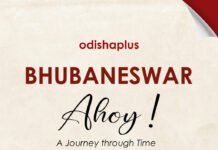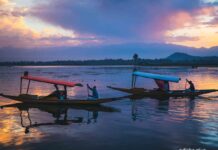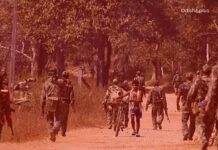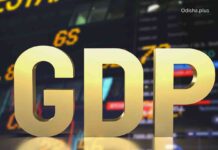Satya Brata Das
The question came many years ago on the shores of the Java Sea from my friend Bakdi Soemanto: a fellow writer celebrated for his fine poetry and plays; as we shared a meditation on the rhythm of the waves.

What do you see in the Sea? Bakdi turned to me with a smile as he asked, then returned his gaze to the play of light upon the water.
Now, nearing the end of my seventh decade, having contemplated so many shores, felt the flow of so many seas, more than a decade after Bakdi left his mortal life, I may have the beginnings of a reply.
What I see in the Sea is Truth.
What I see in the Sea, at every sunrise and sunset at the meeting of water and sand, in so many beaches spanning so many nations and so many cultures, is the Unity that binds us all: the Truth that is so often elusive, beyond the veil of the fables and illusions we spin for ourselves.
The eternal, abiding Truth, which persists despite the superficial divides of languages, cultures, ethnicity: the Truth that we are One. We do not have two humanities, two shared planets, two shared futures. The sea changes with every wave, with every wafting breeze, with every tide, yet remains One. We are not Two. We are One humanity.
Perhaps you knew this answer all along, dear Bakdi, and knew that at some point in my life’s journey, I would come to know that we humans are One. Just as the vastness of the Sea is One: no matter how we divide water into oceans and seas, into gulfs and bays. It is our way of making sense of an immensity that defies comprehension, taking portions of the Sea and giving it different names.
Perhaps this is why we divide our humanity and amplify those divisions: so that we can relate to our geography, to our lives, to our tribalism, simply to make sense of being and belonging to something or someone.
Yet our shared future, our shared planet, our underlying unity, impels us to explore new paths of Being and Belonging.
Science tells us life emerged from the Sea. And it is by returning to the endless Sea, learning from the rhythms and patterns of its currents and its flow, that we delve deeply into ourselves: divesting identity, ego, status and the illusions of wealth, to know who we truly are.
Perhaps we will find the humility of knowing our own insignificance in the immensity of the Sea. Perhaps we will emerge with what we thought lost: the sunken truths left behind by our ancestors, nurtured still by Indigenous cultures, awaiting revival so that we may find a shared vessel to navigate life’s difficult journey.
Pursuing uncharted paths of Being and Belonging becomes essential to our well-being, as we are summoned to address the deep disaffection afflicting human civilisation.
We note the feeling of disconnectedness from the echelons of power, the notion that the system was gamed to benefit the few at the expense of the many. The abiding fear that even the most advanced societies have fissures and fractures that do not bode well for a world that ought to have human dignity as its abiding principle.

Seldom has there been a greater need for Truth in service of a just society, an inclusive society, where pluralism and diversity are seen as strengths rather than failings: societal development that works for all of us, not only some of us.
The “fierce urgency of now,” to evoke Dr. Martin Luther King’s clarion call, is a future where all persons live together with dignity: in community, enjoying freedom from fear and freedom from want, in harmony with one another and with the natural world. This is the Truth I see in the Sea.
Perhaps this is why I am finding renewed purpose in this closing phase of my life’s journey: inviting companions, fellow travellers on the journey, to be conveners, unifiers, and keepers of truth.
To remain guardians and champions of reason, knowledge, and wisdom in a time of turbulence and chaos.
To offer the unifying balm needed to heal a fragmented world: at a time when science and knowledge itself is under attack from the forces of ignorance, division.
To extend empathy and love and compassion to our fellow humans: even as the expansion of inequality, the erosion of social cohesion, the abiding thirst for war, and the capricious ravages of the climate crisis pose an existential threat to a sustainable future.
The Maha Upanishad, part of the school of philosophy that seeks to bring us nearer to understanding the Truth that lies beyond human consciousness, describes the progress of our journey, and the destination that awaits beyond the horizon:
अयं निजः परो वेति गणना लघुचेतसाम्।
उदारचरितानां तु वसुधैव कुटुम्बकम्॥
ayaṃ nijaḥ paro veti gaṇanā laghucetasām।
udāracaritānāṃ tu vasudhaiva kuṭumbakam॥
In my lyrical translation:
This one is ours and that one is theirs say minds asleep in the mire
Awakened minds know they belong to the family of the world entire
Our quest for an inclusive future that leaves none behind is beautifully illuminated in that shloka from the Maha Upanisad. Indeed, its evocation of the Unity of all, “Vasudhaiva Kutumbakam,” became the motto of the Indian presidency of the G20 group of nations, rendered in English as “One Earth, One Family, One Future.”

Yet it is more than a slogan to bring a glimmer of unity and hope in the turbulence of geopolitics. It is also a recognition that it is we ourselves who need to find our own way to this truth, to overcome division, to overcome Otherness.
Perhaps we will learn to move beyond our societal framework of striving to be the best in the world, to consider with sincerity and humility how we can be the best for the world.
With this understanding, our duty of care to one another comes into focus: to be a preferred guardian and catalyst of the pursuit of Knowledge and Truth, to sustain a future that works for us all.
This call to the light of knowledge, through the unwavering pursuit of all that is true, has animated my own life’s journey. My grandparents named me “Satya Brata” one who is pledged to uphold the truth. And despite many flaws and failures, I have spent my public life summoning truth to the service of humanity.
When we focus on common purpose and the common good, we come to see that sustainability is about accommodating differences. It is about finding the compromises necessary so that people from very different backgrounds, raised with divergent experiences, each one’s version of “truth” shaded by the perceptions that have made them, can find a way to share a society.
This is the difference between a sustainable social cohesion and “winner take all” attitude, where the dominant political party or tribe rules to the exclusion of all other interests, until it is duly removed from office by another political tribe — or by force.
Finding common ground among many realities is really a commitment to pluralism: a harmonious co-mingling that acknowledges and accommodates disagreement, and a continuous search for the trade-offs we are willing to make to find a common path that works for us all.
I am convinced we will find the path. By looking beyond our superficial differences to rediscover the merits of cooperation and collaboration and shared purpose. Perhaps we will learn together what it might mean to establish and animate the politics of love as the resilient foundation of everyday life. This is the Truth I see in the Sea.
(The writer is a strategist residing in Canada. Views are personal.)




























